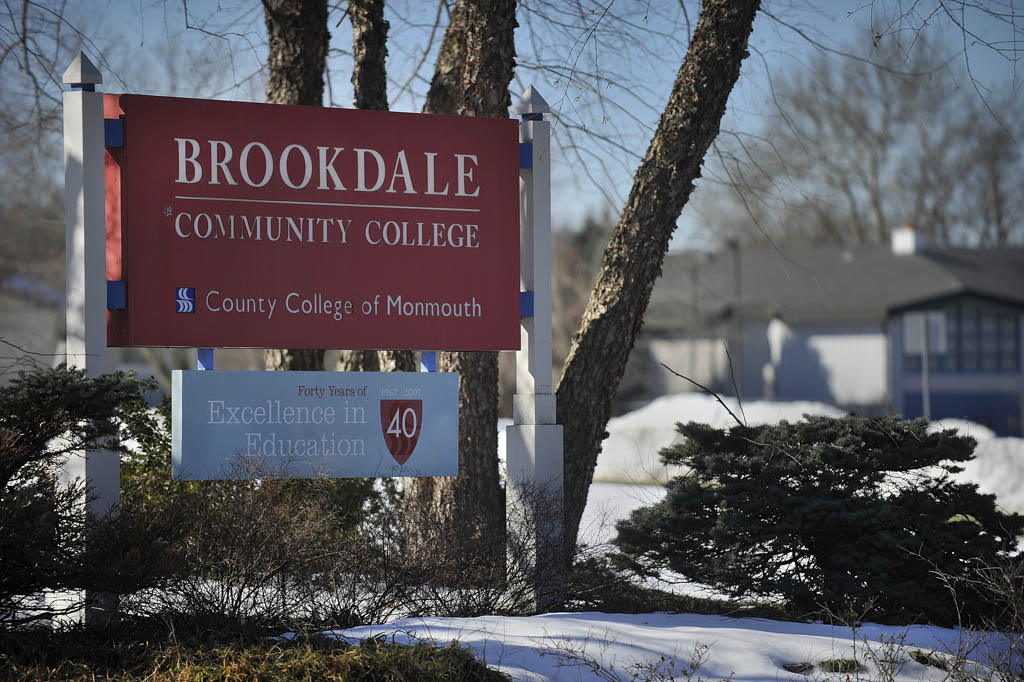By Kayla J. Marsh
Staff Writer
As the 400th anniversary of William Shakespeare’s death approaches, the English-Speaking Union’s National Shakespeare Competition has high school students from across the country bringing some of The Bard’s most influential plays, characters and other works to life.
Through the competition, participants develop communication skills, challenge their intellect and acting skills and gain a deeper appreciation for the power of language and literature.
In early March, students in grades nine through 12 from numerous local high schools assembled at Brookdale Community College for the 26th annual Shakespeare Competition that was sponsored by the Monmouth County Branch of the English-Speaking Union.
“It is an interesting event, especially relevant this year because it is the 400th anniversary of Shakespeare’s death,” said Janet Pitman, Monmouth County Branch of the English-Speaking Union’s Shakespeare Coordinator.
The competition was started by the English-Speaking Union of the United States in 1983 and each of the networks 68 branches participates.
“The way it works is that each year, each branch holds a competition for local high school students,” Pitman said.
“They send out notices and the competition really begins in classrooms nationwide.
“Teachers incorporate the idea of the competition into classroom studies, and students practice reciting a 20-line monologue from one Shakespeare’s plays, taking on the role of one the characters and delivering the lines with the best possible understanding they have and the best expression they have through their voices, bodies, movements, facial expressions.
“They can’t use accents, props, costumes, the emphasis is on understanding the lines and what you’re saying and how to express that in most natural, simple way.”
The winner of the school competition advances to their local branch’s competition, where in front of a panel of professional judges, they perform their monologue and a Shakespearean sonnet.
This year at the 26th annual Shakespeare Competition sponsored by the Monmouth County Branch of the English-Speaking Union, third place went to John Gnazzo from Red Bank Catholic High School for his performance as Antony from the play “Julius Caesar.”
Second place went to Shea Grant from Red Bank Regional High School for her performance of Phoebe from “As You Like It.”
First place went to Kaylee Defreitas of Howell High School for her performance as Viola from “Twelfth Night.”
Also among the finalists were Miranda Sapoznik from Colts Neck High School, Karoline Winzer from Communications High School of Monmouth County in Wall, and Caroline Kinley from Glen Ridge High School.
Along with branch winners from across the country, Defreitas will advance to the national competition that will take place in early May at Lincoln Center in New York City.
First prize is an all-expenses paid trip to study acting at a multi-week summer program, such as the Royal Academy of Dramatic Art’s Young Actors Summer School, in England.
“The progression from the classroom to the school competition to the local and national competitions … the competition is so high and students are coming from all different places with different levels of training, but really this is a great avenue for students who have an interest in Shakespeare and who want to independently act on their interest and learn more about him, do justice to his words,” Pitman said.
“Many take this competition very personally and work very hard to get it right and some students have gone on or will go on to careers in theatre in various forms.”
Pitman said during her 15 years as the former chairperson of the Monmouth County branch competition, she has heard a lot from students and how they enjoy the competition.
“There is a kind of camaraderie … where even though they are competing against each other, they are so complimentary and support each other and say how much they enjoyed what the others have done, and show admiration for their peers and their talents and it is quite warming,” she said.
“I think this competition gives some of these students who might not participate in many other activities time to shine and share and learn a lot from each other and their teachers and it is an outlet that gives students an opportunity to further their arts education [and] a lot of them say this was the best theatre experience they ever had and that their participation has motivated them to pursue careers in arts.
“It is a really good opportunity and … I think it has influenced the way people teach and learn Shakespeare [and] that is what we help to promote — that it is much more than just sitting in a classroom reading.”

